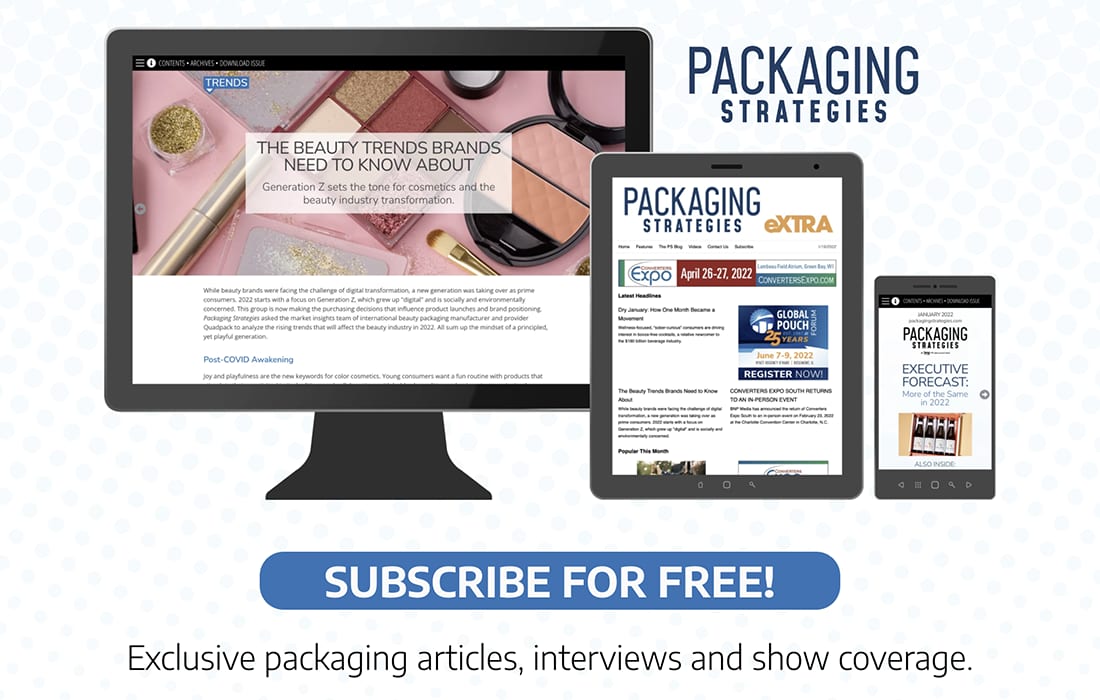
Aluminum vs. Steel:
From Environmental Impacts
to Meeting Consumer Needs
Yes, both metals are effective but what do consumers want?
By Brandon Bach
Transparency in products remains important to consumers. They want to know where the everyday products they purchase are coming from, what they are made of and if they fit their shopping preferences. In fact, according to a study from Nielsen and Label Insight, 39% of shoppers would be willing to switch brands to start using products with more transparent labels, meaning they want to know more about the product sourcing information.
One of the biggest forms of transparency that consumers want is a look inside a company’s sustainability efforts. Previously, packaging companies relied on retailers and brands to deliver messaging about waste, recycling and circularity. But now, under pressure from NGOs and other groups to reduce waste, the packaging industry is having to address consumers directly. Because of this, many companies are looking for alternative materials for packaging options.
Making small changes in the materials that companies use can result in large sustainability impacts. One material that is being phased away is steel. Many packaging companies have found a more durable and sustainable alternative that is just as cost efficient.
ADVERTISEMENT
Making the Switch to Aluminum Packaging
Aluminum has proven to be a trending new alternative to steel, especially in products such as electronics, building parts and even jar lids. Aluminum is at the top of the recycling chain and can easily be recycled without damaging its durability and quality. Because of this, brands are starting to make the switch to aluminum from alternative metal packaging that has traditionally been used. In fact, according to The Aluminum Association, more than two-thirds of all aluminum that has been produced in the world is still in use today.
The Sustainability Benefits of Aluminum
Unlike steel, the process of recycling aluminum requires less energy and time. The Aluminum Association also found that “Aluminum is 100% recyclable and retains its properties indefinitely. Aluminum is one of the only materials in the consumer disposal stream that more than pays for the cost of its own collection.”
When using materials like steel in packaging, the metals tend to corrode, causing packaging companies to spend additional money on coatings. Plastisol is a liquid that can be heated to form a flexible and rubber-like material that is widely used for a number of packaging needs, including sealing lids to jars. If any metal exposure is present when producing a product like jar lids, it can form corrosion from curing the plastisol to the coating. Most jar lid manufacturers will put a coating over the metal to prevent corrosion due to the acidity of the product being placed in the jar.
Although it sounds like an easy fix, plastisol and other coatings can add up in cost, slow production lines exponentially and create even worse impacts on the environment.
How Does Aluminum Hold Up Against Steel?
For companies who are on the fence about making the switch to aluminum, the benefits of this material go way beyond sustainability. The cost of recycled aluminum is far less expensive than that of steel, allowing manufacturers to purchase materials that save them money without sacrificing quality.
As far as corrosion, aluminum actually holds up better than steel. The material does not rust easily and does not need additional coatings to maintain its quality. In contrast, steel tends to corrode and rust at a much faster rate. Because of this, manufacturers sacrifice the quality of their goods when it comes to shipping products to different environments. Numerous factors such as air quality or abrasive shipping methods can test the durability of steel and potentially cost manufacturers to replace goods.
Additionally, with the rise of e-commerce sales stemming from COVID-19, more consumers are opting to shop online. Because of this, many packaging companies are considering aluminum due to its lightweight, which allows manufacturers to maximize the number of products that can be shipped at once. Aluminum is one-third of the weight of steel, influencing choice for manufacturers.
Meeting Consumer Needs
It’s crucial packaging companies and manufacturers are listening to consumer needs and taking them into account when it comes to producing a product. Practicing material transparency and emphasizing sustainability efforts will both put companies in a better position when it comes to meeting consumer needs and matching their shopping preferences.
A study by IBM showed that 57% of consumers wanted to change their shopping habits to help reduce negative environmental impacts. The switch to sustainable materials is only projected to increase as consumers continue to shop with sustainability in mind.
Brandon Bach, president of CTT, has more than 18 years of experience in project management, marketing, video production, which includes both video and graphic creation as well as designing, setting up, and running live events. He currently serves as the president of CCT, the manufacturer of the EEASY Lid – the first major jar lid innovation in more than 75 years.
